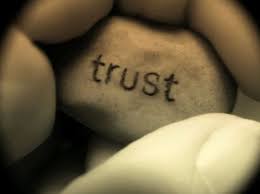
Reversing the Trust Equation: What If Funders Had to Prove Our Trustworthiness (Instead of Grantees Having to Prove Theirs)?
Lately I’ve been inspired by the notion of changing the rules of the philanthropy game here in the U.S., like Professor Ray Madoff’s challenge to institutions with over six hundred billion dollar endowments be required to pay out more than 5% and stop using “charities” as tax shelters for amassing wealth. Professor Madoff’s ideas seem to reverse the rules of inequality – rules that basically keep the wealthy wealthier and the poor poorer.
I want to apply this equation reversal to the sometime overly bureacratized way grants are made. There are a set of practices in foundation based grant making that dedicate an inordinate amount of attention to whether or not a potential grantee is trustworthy. Resources, time and talent are invested in due diligence.
While I don’t begrudge an investor the measures that may be necessary for vetting possible people and situations in which to invest, I wonder: What if we reversed the equation? What if funders invested just as much energy in being trustworthy?
What if funders sought to demonstrate through institutional practices, whether they look anything like TWI’s or not, that we are listeners and learners who can only come to powerful solutions to our world’s intractable problems through partnership and collaboration?
What if we admitted we were just as mystified as anyone else about how we revamp a criminal (in)justice system that is inherently biased and life threatening to black and brown communities?
What if we came to the table with our resources, yes, but more importantly, our commitment to the long haul and the humility that such collaboration required?
I think sometimes about the willingness to not so easily absorb the privilege that comes with being a grant maker – an automatic privilege of being catered to that is afforded to those with resources (whether they share or not). If I were willing to help build a system that did not cater to my preferences, what would it look like?
These questions point to the kind of society that TWI seeks to imagine with you – because they reverse the sick equations of inequality. I’d love to learn more about what you are doing to reverse the equations of inequality – particularly in the philanthropic sector. Please consider sharing your questions, successes, failures with us.
This is lovely; thought-provoking. Probably also provocative! It spurred an image for me of a pool of donors and investors pledging together that a certain total amount will be dedicated to a certain issue or goal. There is a collective process for identifying grant partners and amounts that involves people deeply involved in the work across sectors and at all levels. Then funders meet with confirmed grantees and make the case for why they are the best funder to have a relationship with on this issue. Grantees decide who their best fit is.
Thanks for this great vision, Leila. Love it. It would be powerful practice for funders to make the case for our involvement in changemaking!